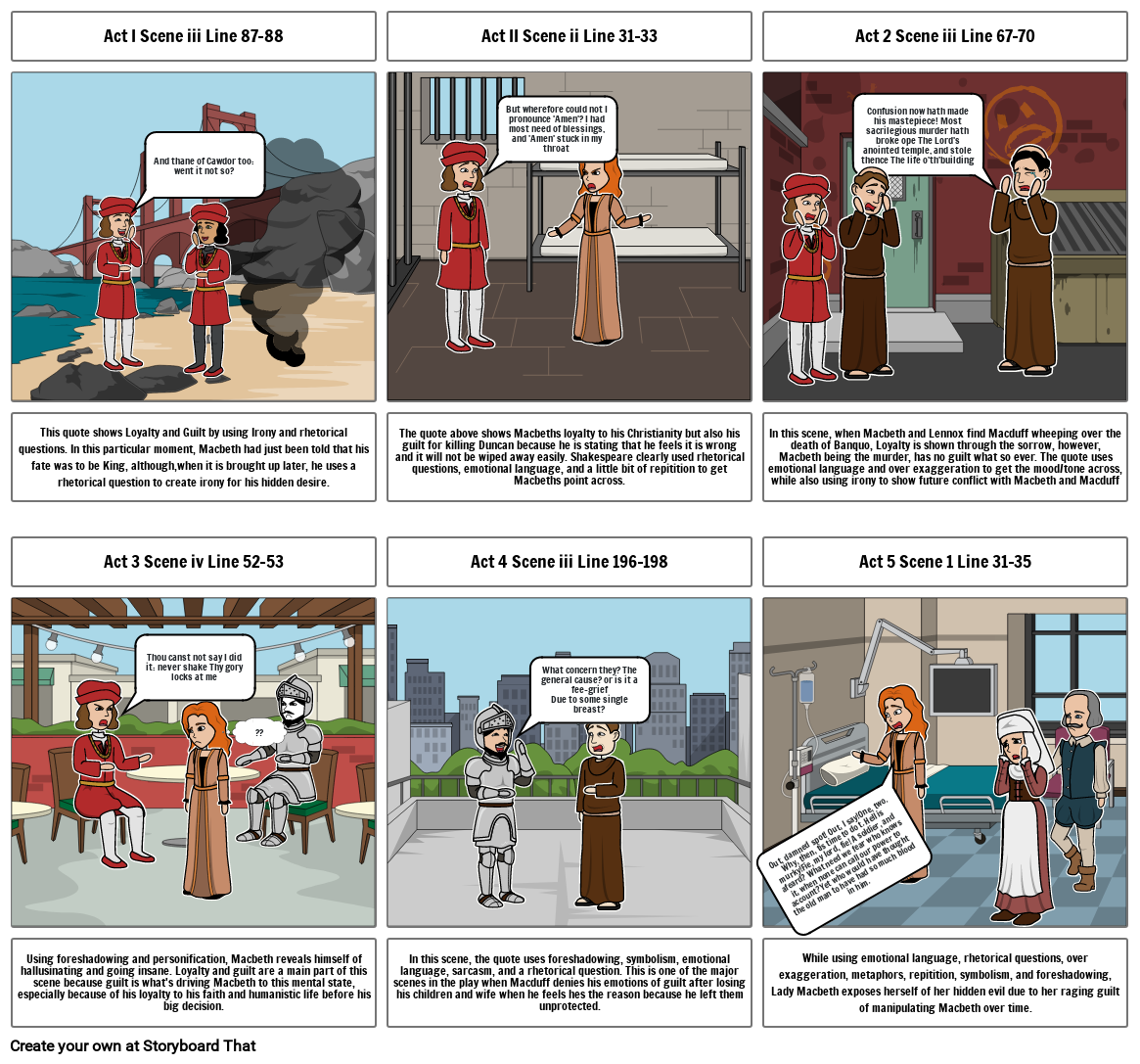Unknown Story

Montāžas Teksta
- Act I Scene iii Line 87-88
- And thane of Cawdor too: went it not so?
- Act II Scene ii Line 31-33
- But wherefore could not I pronounce 'Amen'? I had most need of blessings, and 'Amen' stuck in my throat
- Act 2 Scene iii Line 67-70
- Confusion now hath made his mastepiece! Most sacrilegious murder hath broke ope The Lord's anointed temple, and stole thence The life o'th'building
- This quote shows Loyalty and Guilt by using Irony and rhetorical questions. In this particular moment, Macbeth had just been told that his fate was to be King, although,when it is brought up later, he uses a rhetorical question to create irony for his hidden desire.
- Act 3 Scene iv Line 52-53
- Thou canst not say I did it: never shake Thy gory locks at me
- The quote above shows Macbeths loyalty to his Christianity but also his guilt for killing Duncan because he is stating that he feels it is wrong and it will not be wiped away easily. Shakespeare clearly used rhetorical questions, emotional language, and a little bit of repitition to get Macbeths point across.
- Act 4 Scene iii Line 196-198
- What concern they? The general cause? or is it a fee-griefDue to some single breast?
- In this scene, when Macbeth and Lennox find Macduff wheeping over the death of Banquo, Loyalty is shown through the sorrow, however, Macbeth being the murder, has no guilt what so ever. The quote uses emotional language and over exaggeration to get the mood/tone across, while also using irony to show future conflict with Macbeth and Macduff
- Act 5 Scene 1 Line 31-35
- Using foreshadowing and personification, Macbeth reveals himself of hallusinating and going insane. Loyalty and guilt are a main part of this scene because guilt is what's driving Macbeth to this mental state, especially because of his loyalty to his faith and humanistic life before his big decision.
- ??
- In this scene, the quote uses foreshadowing, symbolism, emotional language, sarcasm, and a rhetorical question. This is one of the major scenes in the play when Macduff denies his emotions of guilt after losing his children and wife when he feels hes the reason because he left them unprotected.
- Out, damned spot! Out, I say!One, two. Why, then, tis time to do t. Hell is murky!Fie, my lord, fie! A soldier, and afeard? What need we fear who knows it, when none can call our power to account?Yet who would have thought the old man to have had so much blood in him.
- While using emotional language, rhetorical questions, over exaggeration, metaphors, repitition, symbolism, and foreshadowing, Lady Macbeth exposes herself of her hidden evil due to her raging guilt of manipulating Macbeth over time.
Izveidoti vairāk nekā 30 miljoni stāstu shēmu

